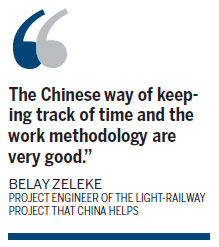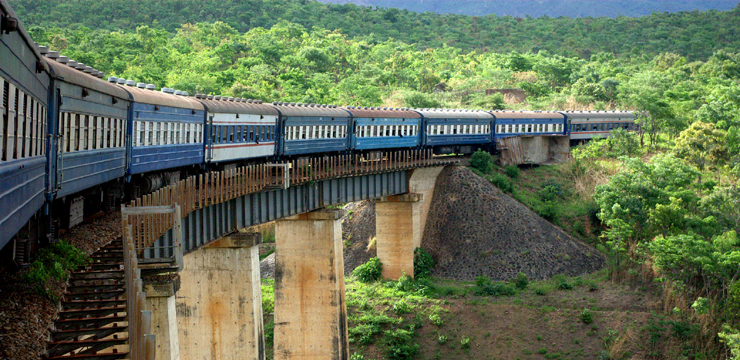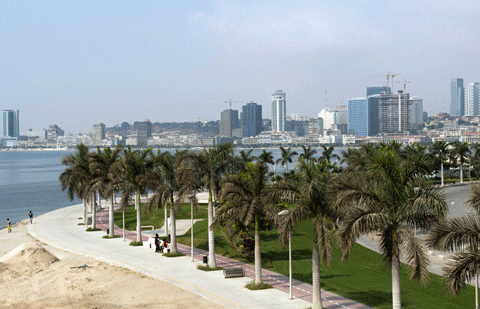Premier helps launch new expressway
Updated: 2014-05-06 07:20
By Li Lianxing and Zhao Yinan in Addis Ababa (China Daily)
Comments Print Mail Large Medium Small


Ethiopia's first toll road, new light-rail project will greatly relieve congestion
Premier Li Keqiang and Ethiopian Prime Minister Hailemariam Desalegn opened a major expressway at a ribbon-cutting ceremony on Monday and promised further cooperation on transportation infrastructure.
On the second day of his visit to Ethiopia, Li visited several construction projects contracted by Chinese companies.
At the construction site of the Addis Ababa-Adama Expressway, Li and Hailemariam witnessed the completion of the first stage of the project and together initiated the second stage.
The expressway, which will link the capital with a nearby state, is the nation's first toll road.
Initiated in 2010, the expressway is expected to accommodate 15,000 vehicles a day, greatly easing the traffic congestion that has choked the capital's transportation for a long time.
In addition to the expressway, China is also helping with a light-railway project in Addis Ababa.
Fekadu Haile, general manager of the city's road authority, said the number of people in the city who need daily transportation soon will be more than 2 million, and light railway will greatly ease the pressure of city traffic.
"The number of buses, taxis and passenger cars is not enough for our citizens, so you will see a very big line of people waiting for them," he said. "Light-railway transportation will reduce the congestion and the number of lines of people."
He also said the railway will save transportation costs for commuters, so the economic value will also be appreciated.
"The problems that we have in transportation are increasing quickly. It is getting worse and worse, so I think the time is right to carry a lot of people per trip," he added.
Belay Zeleke, project engineer of the light-railway project, said that the company is committed to both efficiency and quality control.
"Normally, in construction, there are two aspects you need to focus on. There is the time aspect and the quality aspect. You can keep the quality, but if you cannot reach the time and target, then you are still in a loss," he said. "The Chinese way of keeping track of time and the work methodology are very good."
Getachew Meskir, a local taxi driver in Addis Ababa, complained about the heavy city traffic and said he hopes new public transportation facilities will save his costs.

"I spend a lot on gas because of the traffic. After the railway is finished, my taxi business will improve because most of the vehicles will be removed, like minibuses or the small taxis. I will have more customers and the road will be free, so I appreciate this train," he said.
He also said the project will change his work schedule, saving a lot of time he spends going to work and returning home.
Another China-led project is the Eastern Industry Zone, 30 km from Addis Ababa, initiated by the Ministry of Commerce in 2007 as a pilot overseas industrial park to carry forward economic and trade cooperation.
By the end of March, more than $57 million had been invested in infrastructure in the economic zone. A water supply system, sewage treatment system, electric power network and 10 major roads have been set up inside the park.
The economic zone is already home to 19 Chinese companies, and 12 of these companies are in operation, producing goods as diverse as shoes, construction materials, steel, cement and automobiles.
Companies in the economic zone are qualified for tax breaks for four to seven years, two years longer than those outside the zone. A one-stop service of customs clearing, tax levying and quality check has been set up in the zone to streamline the administration for companies. They also pay 5 percent less on the costs of transportation by road and by sea than those outside the zone.
Contact the writer at lilianxing@chinadaily.com.cn.







